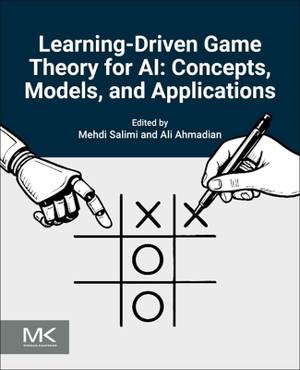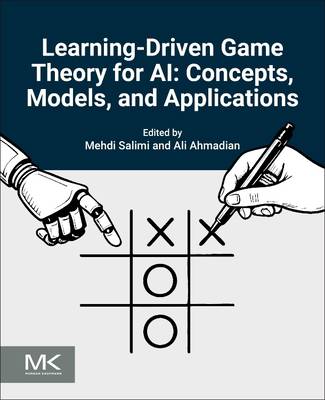
- Afhalen na 1 uur in een winkel met voorraad
- Gratis thuislevering in België vanaf € 30
- Ruim aanbod met 7 miljoen producten
- Afhalen na 1 uur in een winkel met voorraad
- Gratis thuislevering in België vanaf € 30
- Ruim aanbod met 7 miljoen producten
Zoeken
Learning-Driven Game Theory for AI
Concepts, Models, and Applications
Paperback | Engels
€ 259,45
+ 518 punten
Omschrijving
Learning-Driven Game Theory for AI: Concepts, Models, and Applications offers in-depth coverage of recent methodological and conceptual advancements in various disciplines of Dynamic Games, namely differential and discrete-time dynamic games, evolutionary games, repeated and stochastic games, and their applications in a variety of fields, such as computer science, biology, economics, and management science. In this book, the authors bridge the gap between traditional game theory and its modern applications in artificial intelligence (AI) and related technological fields. The dynamic nature of contemporary problems in robotics, cybersecurity, machine learning, and multi-agent systems requires game-theoretic solutions that go beyond classical methods. The book delves into the rapidly growing intersection of pursuit differential games and AI, focusing on how these advanced game-theoretic models can be applied to modern AI systems, making it an indispensable resource for both academics and professionals. The book also provides a variety of applications demonstrating the practical integration of AI and game theory across various disciplines, such as autonomous systems, federated learning, and distributed decision-making frameworks. The book also explores the use of game theory in reinforcement learning, swarm intelligence, multi-agent coordination, and cybersecurity. These are critical areas where AI and dynamic games converge. Each chapter covers a different facet of dynamic games, offering readers a comprehensive yet focused exploration of topics such as differential and discrete-time games, evolutionary dynamics, and repeated and stochastic games. The absence of static games ensures a concentrated focus on the dynamic, evolving problems that are most relevant today.
Specificaties
Betrokkenen
- Uitgeverij:
Inhoud
- Aantal bladzijden:
- 250
- Taal:
- Engels
Eigenschappen
- Productcode (EAN):
- 9780443438523
- Verschijningsdatum:
- 1/02/2026
- Uitvoering:
- Paperback
- Formaat:
- Trade paperback (VS)
- Afmetingen:
- 190 mm x 235 mm

Alleen bij Standaard Boekhandel
+ 518 punten op je klantenkaart van Standaard Boekhandel
Beoordelingen
We publiceren alleen reviews die voldoen aan de voorwaarden voor reviews. Bekijk onze voorwaarden voor reviews.










